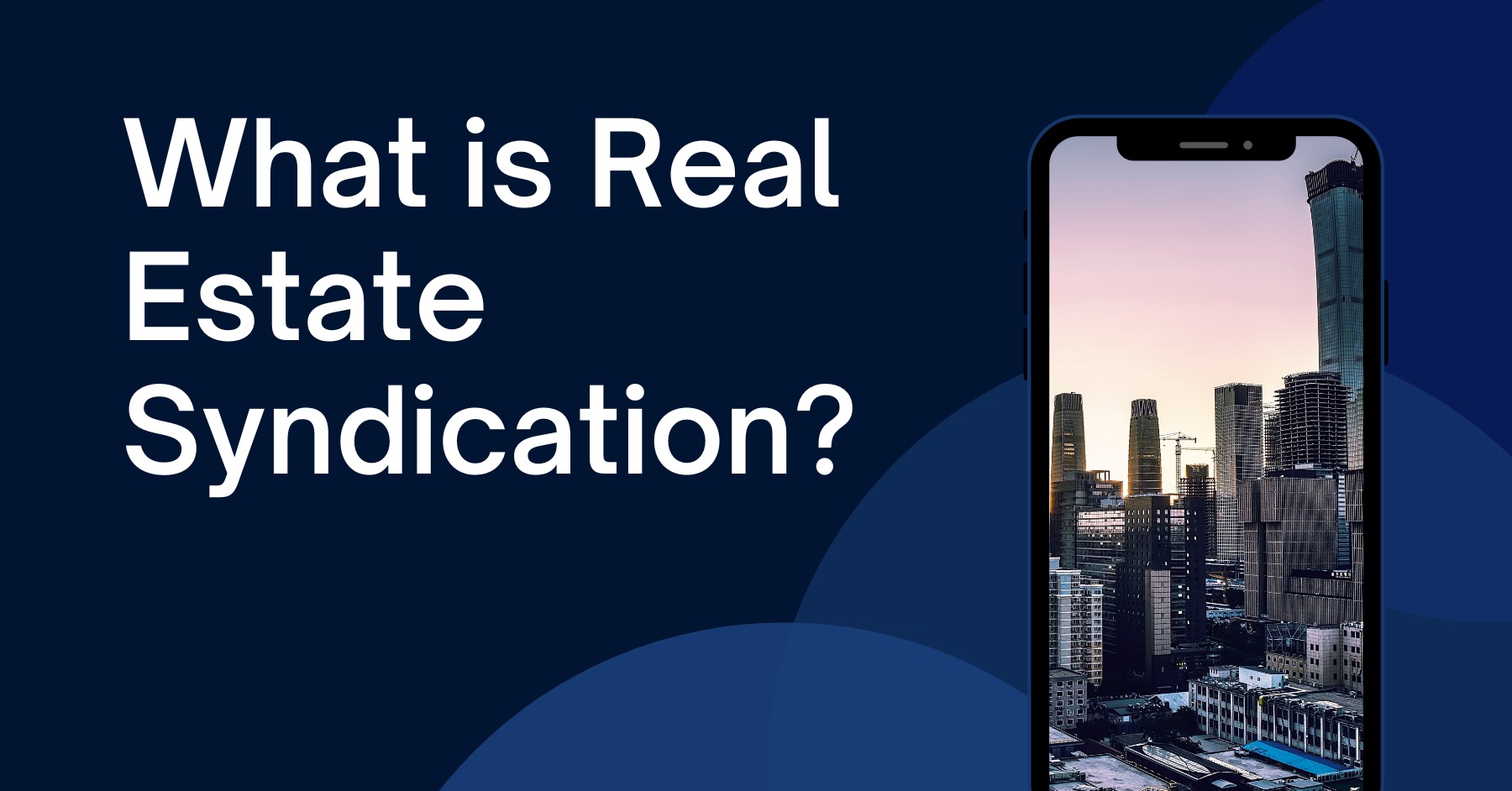Passive real estate success can be greatly achieved with the right education and knowledge. Education is critical because it allows you to understand how the industry works. With the right education, you can find the right deals that will give you promising passive income. Successful businessman and investor Siva Venugopalan shares how he started in real estate with single-family homes, shifted to multifamily, and focused on passive real estate. He talks about the importance of getting educated because you are spending your hard-earned money to invest with someone. You’ve got to understand who it is you’re investing with, what it is you’re investing in, and how things are going to work to achieve success in passive real estate investment.
—
Passive Real Estate Success As A Busy Professional with Siva Venugopalan
Our guest is my friend Siva Venugopalan. We are just going to get into it and to the readers out there, Siva’s got a diverse and successful background. I’m excited to be able to bring his real-world experience to you and be a conduit here. Could you tell the people out there what’s your background, where did you come from and what do you do in your business day-to-day?
It’s nice to be here. Thank you. I wanted to give you a little bit of background. I came from India with a Master’s and I came here to do my Master’s. I got a full scholarship. That was the only way I could come here. It’s a great country. I finished my Master’s and started working for a few years and then I said to my boss, “I would like to do it this way.” He said, “When you have your own business, you could do it that way, but while you’re working here, you want to do it our way.” I said, “You are absolutely right. I should do that.” Since then, I had this idea of starting my own business. A couple of years later, I gave the resignation. I started my own business with $5. Only foolish people would do something like that, which I did. Knock on wood many years later, we’re doing fantastic. We’re doing well.
A lot of it is hard work and some of it is luck. You have to be in the right place at the right time sometimes when you get that bump and I got some of those. I’m grateful and thankful. Only in this country, somebody like me who comes in with $750 and two suitcases could do something like this. I’m certainly grateful for it. I’m appreciative of all the acquaintances and the friendships along the way to bring me where I am now. As I grew my business, one of the things that happened was the cashflow was coming through and I wanted to figure out how do I deploy the cash. In the first several years, I was building my business, putting it right back into the business, which was the right thing to do.
After a certain point I said, “What’s a better use of this cash?” My wife and I thought about it. We ended up spending some time trying to get some of the single-family homes because we bought our own house and we made some money. We knew that path and so we did that. We bought single-family homes. When we thought about how to continue investment, we found that the single-family home path was not scalable as we could see it. It’s because of the amount of work that was involved, the number of things that we had to do initially and then continue to do it over time. We thought, “There’s got to be a better way than this.” We looked around and looked at the student housing, twelve-unit, fifteen-unit or whatever. As we were ready to buy, we found out that we need to do some due diligence. We need to learn something before we do this.
That particular thing would have taken us down if we had not listened to somebody else, which was Dave Lindahl. He gave us good pointers. After that, I signed up for the entire education package, which I’m glad I did a few years ago. Since then, we have focused on multifamily and that seems to be a better way to scale. It seemed to be a better way to get returns. It’s also much more passive than what I wanted to do with the single-family and anything else for that matter. Our goal was to be passive because I run my own business and it’s pretty busy. I like what I do. For the longest time, I was like, “I don’t want to miss that.” The only way to do that is to do passive investing. That’s what I’ve been doing for the last few years. We worked with several operators and invested in several multifamily syndications. We are GP on some of those. We’re doing well.
There’s a whole lot in there that we went through. I believe you said several years of history and a couple of minutes. You came to the US to get educated. You ended up starting your business and then a few years ago you wanted to start getting into multifamily investing and education benefited you. You signed up with Dave Lindahl and it’s got you to where you are now. Would you agree that education being important for you personally in your progression through business and then getting into real estate investing?
I would say education is absolutely important. If you’re going to do anything of significance, for example, if you’re going to be a doctor, you’ve got to get educated. If you’re going to be an engineer, you’ve got to get educated. If you’re going to be an accountant, you’ve got to get educated. In the same way, if you’re going to be an investor, you’ve got to get educated. You are spending your hard-earned money to invest with someone. You’ve got to understand who it is you’re investing with, what it is you’re investing in. How is this going to work? You’re not going to be an expert, but just enough of education will help you understand. You can go to sleep at night knowing that you invested in things.
I personally would recommend education for everyone and anyone who wants to invest in real estate, particularly multifamily or any form of commercial real estate. Single-family is different. Education is better there, but you could do it without. Multifamily and commercial, you absolutely want to have an education. You want to find anybody who has done enough of it. Whoever you interacted with enough and knows the business, understands how it works, you definitely want to do that. It is worth the money and the time you spent because that will set you up for success. If you don’t, whatever you have will probably go with you.
It will set you up for success and help you avoid a lot of potentially money-losing situations. Probably not all of them, but a lot of them will help you avoid them.
In the last few years, most deals have been really good. Moving forward, the next few years, unless you educate yourself, you’re going to find some deals that are not working out because the market turns. The predictions may not come true or it might change. If you educate yourself, you will select better deals.
I invest actively and passively in multifamily as well. I see deals come across where they’re looking for investors. I take a few minutes to duplicate their model in my own underwriting software. Either their math doesn’t check out with my calculations or when I go through it, they’re not anywhere near as conservative as they say with either their rent growth assumptions or vacancy assumption. Anything like that where you’re changing something by $10 a month or a couple of vacancy by 1% or 2% completely throws the deal off.
There are two things I find to be very important. There may be several, but two right now because people are selling what they bought a few years ago. A few years ago, the property assessment was much lower than where it is now. The taxes are much lower. Every time you do a deal now, the tax amount is almost double. You have to change your underwriting to put the new tax amount. That’s one. Two, when you have those interest rates, you don’t want to get something that’s going to have a two-year balloon or two-year refi. You don’t know what the market’s going to do a couple of years down the road. What if you’re not able to refi it? What’s going to happen? I would rather take a ten-year fixed, even if I had to pay a quarter-point more.

Those deals may not look like there’s money in it, but you can go to sleep at night. There’s a tradeoff between how much money you want on paper as to whether you can go to sleep. Those are two things. You mentioned about being able to see what rent increase you can get, there are assumptions nowadays. I see some of those turns that are showing a rent increase of 8%, 12% or 15% in the first year because it’s so under the market that they could raise the rent. It may be true if you go look at the CD data which was a couple of years ago, that allows you to say, “It’s $100 below.” If you go look at the current market rent or calls, go to Google, find out the local area column and see what’s the rent they are charging.
The realtor might show you, you can charge $1,000 but you call around, there are people renting for $900. There is no way you can charge $1,000. You’re going to have much more vacancy. If you do that, you have to calibrate your vacancy down to 90%, 85% or something. Your underwriting is important. You have to do your own underwriting. That means you have to learn this business and you have to know what the common expenses are. What is the normal range of expenses for a given multifamily apartment building?
The expense total could be anywhere from 40% to 60% with an average of 50%, but a good operator can bring it down to 40% or a good deal will have only 40% expense, which is significant cash left. Whereas a smaller deal might have 16% expense with a small amount of cash left. The operator experience becomes important in figuring out whether the passive investors are going to get the cash and have some left for the managing members also benefit from it. I don’t do any deals where there’s no money for the managing member. How long is somebody going to manage well if there is nothing for them? It’s not very long. I look for not only passive investor cash, I’m looking for manager’s cash as well. If that is the deal that contains both from day one, I’d be interested in it.
You’re getting educated about the numbers and those things but what’s your opinion on the people that are running the deals? How do you personally vet your sponsors that you’re investing with or other people that you’ve been on a general partnership side as well? How are you building those relationships, getting to know those people that may be doing due diligence on that as people so you can sleep at night?
That’s one of the difficulties in this field is it takes time to develop relationships. It’s not one email then Facebook and says, “I’ve got all this deal. Come and get me.” It’s not like that. I develop relationships for six months or a year where I look at a couple of deals. I give comments to them and see how the response is. It’s not necessarily what they say, it’s about how they say it. Are they receptive? Are they engaging with my input? Do they have logical reasoning behind that? Are they dismissing it offhand and say, “We don’t know what you’re talking about. We know it?”
Maybe they do, maybe they don’t, but you have to help me understand why it is that I don’t. That operator is a good operator. An educated client is always a better client. That’s how I look at it. From my business, I always educate my client. This is the principle. This is the reasoning why we do things. It’s always good because if a client knows why we are making decisions, what drives us to make those decisions, next time when we make decisions, he’s going to apply the same principle and say, “Does it follow the same thing?” The principle is important. The decision may be different for each project, but it’s based on the principle that’s important.
Everybody has the same amount of time. You've got to have a certain amount of gratitude and thankfulness for anybody who gives you time. Click To TweetThat’s what I’m looking for from operators. Do they have solid principle? What is that principle-based on? Who are they? Are they people with integrity? Are they people with a track record of integrity? Trust is what drives business. Stephen Covey whom I talked about, business at the speed of trust is different than anything else. If you have trust in people, sometimes people won’t even look at your numbers. You tell them, they believe you and they do this. The reason they do that is that they know you take their money more seriously than your own money. They’ve seen it year after year that your track record is one of that. I still believe passive investors should pay attention to all the numbers even if they have a trusted operator. The more trust you develop, the easier it is as an operator for you to be able to attract money for your deal. I take time to develop that trust with operators as much as they take time to develop trust with passive investors. It takes time.
One thing I tell people is that everybody has the same amount of time. Anybody who gives you time, whether it’s an operator or a passive investor, there’s got to be a certain amount of gratitude and thankfulness from either side. It is the time that we don’t have and we are engaged in good faith. We’re engaging in truly wanting to do business together. That’s where you communicate honestly where you find gaps or the difficulties and you are able to get across the line. If they tell you, “Here’s how we’re going to do this, here’s our track record. Why not invest a small amount of money and we will show you how we’re going to do this?” That would help you to move in that direction because you are slowly developing that trust. They’ve heard your concerns. They’re responding to your concern with data, not simply just, “Trust me.”
You mentioned about being an engineer and you and I are both engineers. We both love our data. I get you there. We’ve met up and everything and we’ve talked about some of the interesting deals that you’ve done. Are you open to getting into that and talking about the most interesting deal that you’ve done so far? It’s the one I’m thinking of that we talked about. I love to share it and I think people would be interested in hearing about it.
Which one are you referring to?
I believe it was in Boston, the sports complex.
It was an interesting deal. I also did in addition to education and learning, I also signed up for coaching with Dave Lindahl. My coach was talking to me about doing deals. I was gung ho like everybody else, “I’m going to do 100 deals. Let’s go do this.” The more I got into it, I realized it only takes time and I talked to my coach. He said, “Why are you not doing it? I know you’re eager. I know you can do this.” I said, “I’m looking at the time commitment that I need to have. I can’t give right now.” He listened to me. He talked to me over a two-month period and he said, “It seemed like you are committed to what you’re doing. You have your own business and that’s okay but what do you want to do with the coaching?” I said, “I’d like to do passive investing. I’d like to learn how to do that.” He said, “Let’s coach for that.”

He started coaching me how to analyze the deal, how to do some of the background checks on how to evaluate the particular area. He did a lot of those things, which I am grateful for. One of those days I was talking about doing passive deals and he said, “Here’s a gentleman friend of mine who was doing this deal. I would like to introduce you to him.” I said, “Let’s do it.” He introduced me to him. I went there and met with him. I was on my path towards Boston and I called and I said, “Can you meet me in Albany or something like that?” The gentlemen came from Providence, drove to Albany and met with me. We had lunch. We talked and he laid out everything to me. Prior to that, I’ve read through the entire deal. The deal was that one of the cities in that local area south of Boston in Rhode Island. Prior to that, this gentleman that I met with, he had his kids that he would truck one kid to the tennis, one kid to the soccer game and one to ice hockey.
He and his wife were spending so much time on the road taking each of their kids to each of these things. He was thinking and dreaming, “I wish I could be going to one place with all three kids and they could go. I could work and I could be productive.” I was thinking that. The more I thought about it, I said, “There is nothing like that in this area. I wish I could do something like that.” Ever since he’s been thinking and talking to other people and he found out through the gray point of other connections that this city had this property of 140-some acres that was designated for certain type of use and they couldn’t change that usage. It was hard for them to get somebody to buy the property and take care of it. They held this thing for quite some time and then the downturn occurred. Nobody wants to touch anything.
It came back out in 2013, 2014, he was approaching and talking to them and they were interested, trying to find out how much it will cost. Somehow, the bill came due for the city and they had to pay a certain amount of money and they didn’t have the money. They said, “If you would keep this exact zoning for this property, take it over, pay this bill and pay some money, we would let you do that.” We ended up getting 110 acres for $3 million and then an option to get another 30-some-odd acre at a later date for a certain amount of money. We ended up getting that. I got in on that deal at the beginning.
Our goal was to put a field house, put an aquatic center, put two-and-a-half sheets of ice and then hopefully put some of the shops inside and then put a hotel in there so when people come in. Fast forward a few years later, we have two-and-a-half sheets of ice built already. We have several shops already operating and we have a contract for a field house that’s being built. We have an aquatic center and we’re finalizing the deals on that. We’re getting towards putting that Marriott Hotel in that property. With the two-and-a-half sheets of ice, initially we were going just to rent it out and keep a small amount of time for ourselves.
What we found is that it’s a lot easier to keep all of it to ourselves and create our own championship game, which this gentleman came up with the idea. They hired an ice hockey coach who’s a very famous ice hockey coach. He became a part of the team and they started their own championship game. They’re inviting different teams all over the country to come and play. Our ice hockey time is completely taken up. It’s doing phenomenally well. This is a deal where there is no cashflow for a few years and we’re going into that. We knew that it’s a unique deal. It’s a different deal than all the multifamily that I deal with, which is I wanted cashflow from day one. That’s the difference.
That’s an interesting deal, especially the multifamily self-storage, mobile home park where all that I spent most of my investing time in. You hear about a development that’s this unique is it’s interesting. I wanted to make sure we share that with people and see what’s out there. There’s a lot out there to invest in.
An educated client is always a better client. Click To TweetIt’s a pretty complex deal with the waterfall, the different LLCs and different offerings along the way with the money that’s coming and all that. The total cost of this project now is about $70 million. It’s a big project and so there’s a lot of complexity to it, but I synthesize it into a simple way to communicate to people. There’s a lot of simplicity made out of this complex deal. The best investment I ever made is Maureen Miles on our first deal that we did. It might be beaten by another one that’s coming right up, which we’re selling soon and which might be beaten by another one that’s coming. As of now, it’s one of the multifamilies in Georgia. It was a great deal. Maureen is a great operator. I cannot sing enough of a praise.
On the other side of that, the painful part, what is the worst deal that you’ve ever made? The worst investment that you’ve ever made?
I don’t know. I want to say the name of the gentleman, but the worst deal is in Macon, Georgia and it went to the receivership. That was the worst deal ever we did. It was I think primarily because of neglect by the operator. He was capable. He just didn’t put the time in. I lettered him probably a year-and-a-half before it went to receivership by not one, two, three, four different passive investors. He kept saying the whole time, “I’ve got it under control. You guys don’t know what you’re talking about.” A few months before receivership, he comes and wants money from everyone. It’s pretty hard to get money from someone you feel fooled for a year. It’s hard for you to give up the money to an operator who has not listened the whole way. What’s happening is that he’s being sued by the city criminally for negligence. They’re trying to put him in jail.
That does sound like the worst deal. Is there any way you could have pulled out a lesson from that hopefully we can avoid the situation in the future? Is there any way, anything that you’ve learned or seen that maybe you could’ve seen it coming in the first place or you’re a-year-and-a-half poking the guy saying, “Is it doing all right?” and he’s saying, “Go away.” Was that time to rally the troops and take the deal back or what do you think?
We tried to rally the troops to take the deal back, but let me tell you this. Could I have foreseen this thing happening that I could not have taken in the deal at all in the first place? I’m still asking the question myself. The more I think about it, if you’d ask me when I consider investing in the property, until that point, I didn’t know this gentleman had any issues in terms of not paying attention to deals. He seemed to have a good track record. He also came recommended somewhat by other people I know who are good people. To an extent, we did some due diligence. These things we bought, a 234-unit door for $5 million and it is really cheap and it was 70% occupied.
It was a heavy lift, but considering 70% occupied, even if you paid for 70% of the units that’s there, it was still not a bad deal. Looking at the deal on paper is not a bad deal. One thing we found out is that if the operator has been good, even in Macon, Georgia, it could have been done well. We could have fixed it up. We could have taken care of things. We could have rented it up and we could have refi’d it. The other thing was the bridge loan. There was a year-and-a-half, two-year bridge loan. It had no cash for the first year. These are some of the things I learned is that I don’t want to do bridge loans unless it’s a certain type of property, where there’s a significant cashflow and that the operator is giving cashflow from day one. This is so much confidence that they have in it that they are able to do this and they could turn it around.

They can take interest on the loan, but they need to give cash from day one and have significant confidence that they could turn it around in a few months so you’ve got a year-and-a-half. Typically, these things come with another year of extension, so two-and-a-half years, maybe three-and-a-half-years or whatever. It comes with a certain extension. It’s not all bad having bridge loan because you have to have a bridge loan when you don’t have 90% occupancy. It’s the way it goes. Otherwise, you can’t get in. Nobody is giving you a loan. Those are some of the things I would warn people is that be careful. This is where learning comes. Educate yourself a lot or find somebody who’s good, they have educated themselves and lineup them with passive investing.
You don’t have to learn everything yourself. I don’t have to learn everything myself. If I join hands with other passive investors, I can learn a lot. I can join hands with operators who are good and I can learn a lot. There are different ways to learn. For me, when you’re talking about passive investing, you need to interact with other passive investors. You need to exchange ideas. You need to exchange information. I am working with a group of passive investors. I try to educate them on all I know within the timeframe that we meet and discuss as much as I could share. I try to educate them just like my business. I educate people on this business as well. If we are working together and they are doing this, then we all benefit.
We benefit as passive investors. The operators that we work with benefit because now they have a certain amount of money that they can count on. These guys understand how they work, understand what their goals are and what type of deals they bring in. I understand those with certain people. I’d be more inclined to look at it and get the money out quickly. As a passive investor, you need to be a man of your word, a woman of your word. If you tell the operator you’re going to participate, you’ve got to get the money ready, you’ve got to have it ready and you’ve got to wire it so that they don’t have to worry about you the week of closing. I tell the passive investors as well that you need to make sure that you take your responsibilities seriously. The operator should be able to count on you to be able to do their job.
Get to know other passive investors, work together with them, learn from each other and spread knowledge. Other passive investors might know the syndicators that you’re talking to. They might have inside information, both good and bad, about that person that they can share with you that they certainly wouldn’t post online, anything like that or wouldn’t publish out there but I’d be willing to share with you. It truly is a relationships business, the real estate business. My favorite question and I hope you like it too, what is the most important lesson you’ve learned in investing?
The most important lesson I’ve learned is to be patient. I’m still learning to be patient. The most difficulty with all investors, passive or active, is when the sun shines. It’s like, “The market’s good, everything is good, go, go, go,” but the important thing is to be patient and wait. A baseball player is letting it go, waiting for that one ball that comes right in the zone so he can hit and the patience is what is difficult in this field. I’m still learning.
Where can our readers get in touch with you? Is there anything else that you’d like to share that you’ve learned throughout your investing experience if you want to put that out there, if we haven’t covered anything you wanted to hit on?
As a passive investor, you need to be a man or a woman of your word. Click To TweetFirst of all, thank you for taking the time. Thank you for the opportunity to share my experience. I appreciate that. One last thing I would say is that for passive investors, you don’t need to know everything. Line up with other passive investors. That’s what I’ve done. I’ve learned enough and I have spent enough time. I have invested enough in education and training. I’ve also invested my own time. I’ve underwritten every single deal that I’ve invested in and I’ve changed my requirements and criteria. I also have access to a lot of different data that I can independently verify and look and see what’s going on in that particular local area. I bring all of that into the mix when I work with other passive investors. I try to educate them on here is the reason I’m doing this. Here’s the value in this. Here are the areas of concern I have. Here’s what I did to alleviate my concerns and a lot of the stuff.
You don’t need to know everything, but you need to take the first step. If you don’t take the step because of, “I don’t know this, I don’t know that,” you will never take the first step. You’re going to make mistakes. Trust me, I told you. I made a big mistake. It’s life. You’re going to make a mistake and you’re never going to be perfect, but take that first step. Real estate is the greatest way to get passive income. You take the first step and you do something small, whatever it is. Granted in this space, you have to have a minimum $50,000, $75,000 to get a new deal, but do it. You do one and you wait patiently. Let it produce results and you go for the next one, which is what I tell all of my passive investors I work with. Do it. Don’t wait too long. If you wait too long, you probably will never do it. It’s analysis paralysis. At some point, you’ve got to pull the trigger.
Everybody had a first deal, everybody that has done anything. Everybody that has ever done anything significant, whether inside investing or outside of investing had to start somewhere. Everybody that set a weight lifting record had to do that first lift. They started with the bar and they eventually became heavyweights. Where can people get in touch with you if they want to reach out?
I can give them my email address. They can shoot out an email and ask me, particularly any passive investors, any operators who have good deals. I’m looking for an 8% cap on cap, which nowadays is a white elephant. 1.6 DSCR and about a 12% cash on cash for the investors. Any operator who have those deals, eager and willing to listen, take a look at it. It may not be on paper now, but when I underwrite it, it could be there. There are a lot of good operators. I don’t know them all. I want to develop relationships. I’m actively working to develop a relationship with all the investors and all the passive investors that come into my framework. To get in touch with me, shoot me an email at [email protected].
It was a great discussion. Definitely reach out to Siva, especially being on the passive side in multifamily real estate. It’s a great experience, but it is not fully passive. You’ve got to go find the sponsors. You have to vet them. You have to build relationships with them. You have to underwrite all the deals that you’re going to invest in and all the ones that you’re not going to invest in too because how are you going to know.
I do go to a lot of conferences. I do spend quite a bit of money and time even though I’m a passive investor, but my goal is to invest in this business. It is a business and I need to develop a relationship with passive investors, operators and people like you both operators as well as people who are connecting other people. I do spend time and money. It’s not totally passive, but it’s as passive as it gets.

Going to these conferences and meeting people, it’s a lot of fun. You and I met at a conference.
It’s fun meeting you, my friend.
It was great talking with you, Siva. Thank you for reading. If you’re enjoying the show, please subscribe on iTunes, Google Play or wherever you get your podcast. We’ll talk to you next time. Take care.
Take care. Thank you.
Important Links:
- Siva Venugopalan
- Dave Lindahl
- [email protected]
- iTunes – Passive Wealth Strategies for Busy Professionals
About Siva Venugopalan

He is passionate about helping others build their streams of passive income by teaching them the skills needed to succeed in the industry.





